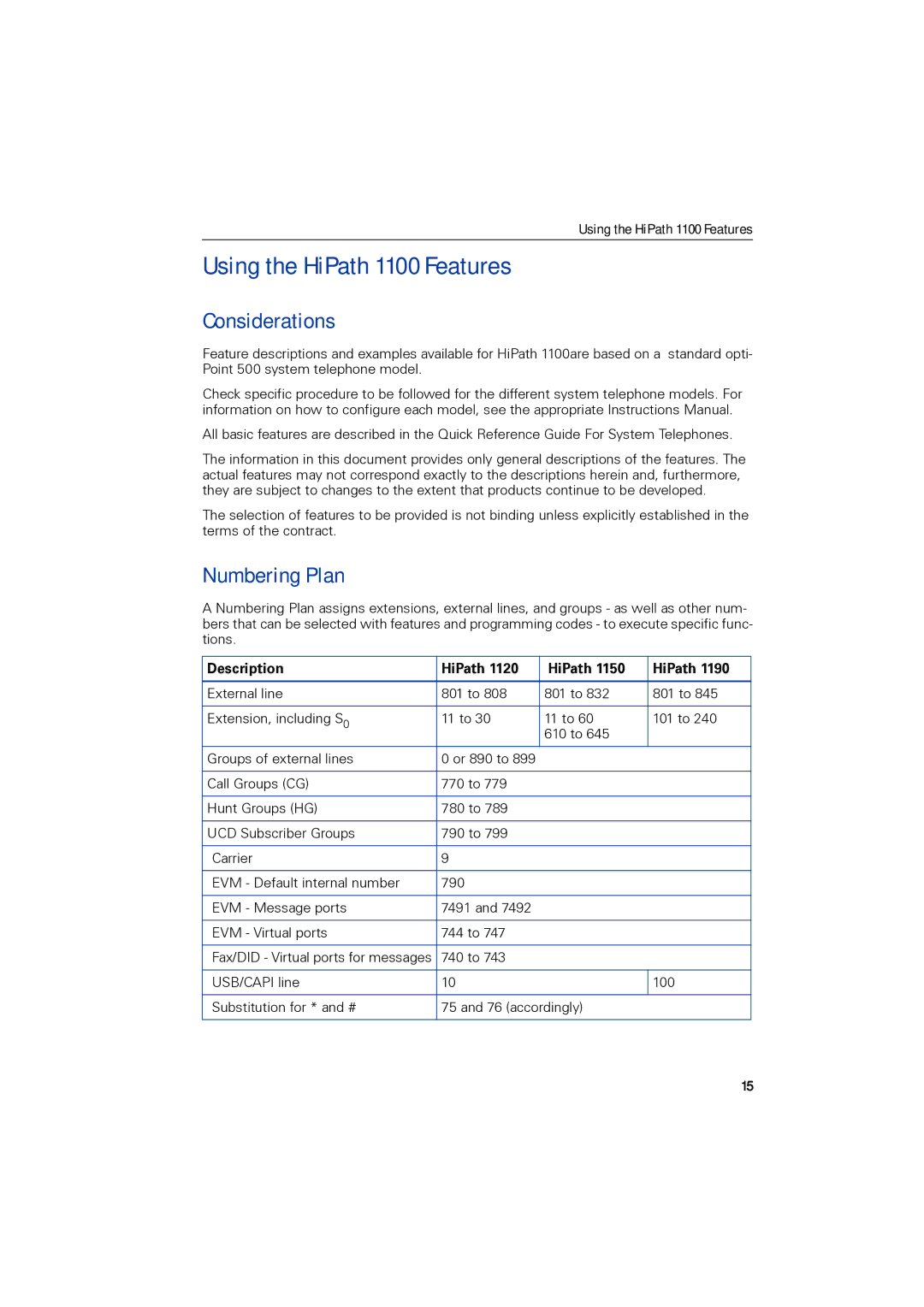Using the HiPath 1100 Features
Using the HiPath 1100 Features
Considerations
Feature descriptions and examples available for HiPath 1100are based on a standard opti- Point 500 system telephone model.
Check specific procedure to be followed for the different system telephone models. For information on how to configure each model, see the appropriate Instructions Manual.
All basic features are described in the Quick Reference Guide For System Telephones.
The information in this document provides only general descriptions of the features. The actual features may not correspond exactly to the descriptions herein and, furthermore, they are subject to changes to the extent that products continue to be developed.
The selection of features to be provided is not binding unless explicitly established in the terms of the contract.
Numbering Plan
A Numbering Plan assigns extensions, external lines, and groups - as well as other num- bers that can be selected with features and programming codes - to execute specific func- tions.
Description | HiPath 1120 | HiPath 1150 | HiPath 1190 |
|
|
|
|
External line | 801 to 808 | 801 to 832 | 801 to 845 |
|
|
|
|
Extension, including S0 | 11 to 30 | 11 to 60 | 101 to 240 |
|
| 610 to 645 |
|
|
|
|
|
Groups of external lines | 0 or 890 to 899 |
|
|
|
|
|
|
Call Groups (CG) | 770 to 779 |
|
|
|
|
|
|
Hunt Groups (HG) | 780 to 789 |
|
|
|
|
|
|
UCD Subscriber Groups | 790 to 799 |
|
|
|
|
|
|
Carrier | 9 |
|
|
|
|
|
|
EVM - Default internal number | 790 |
|
|
|
|
|
|
EVM - Message ports | 7491 and 7492 |
|
|
|
|
|
|
EVM - Virtual ports | 744 to 747 |
|
|
|
|
|
|
Fax/DID - Virtual ports for messages | 740 to 743 |
|
|
|
|
|
|
USB/CAPI line | 10 |
| 100 |
|
|
| |
Substitution for * and # | 75 and 76 (accordingly) |
| |
|
|
|
|
15
